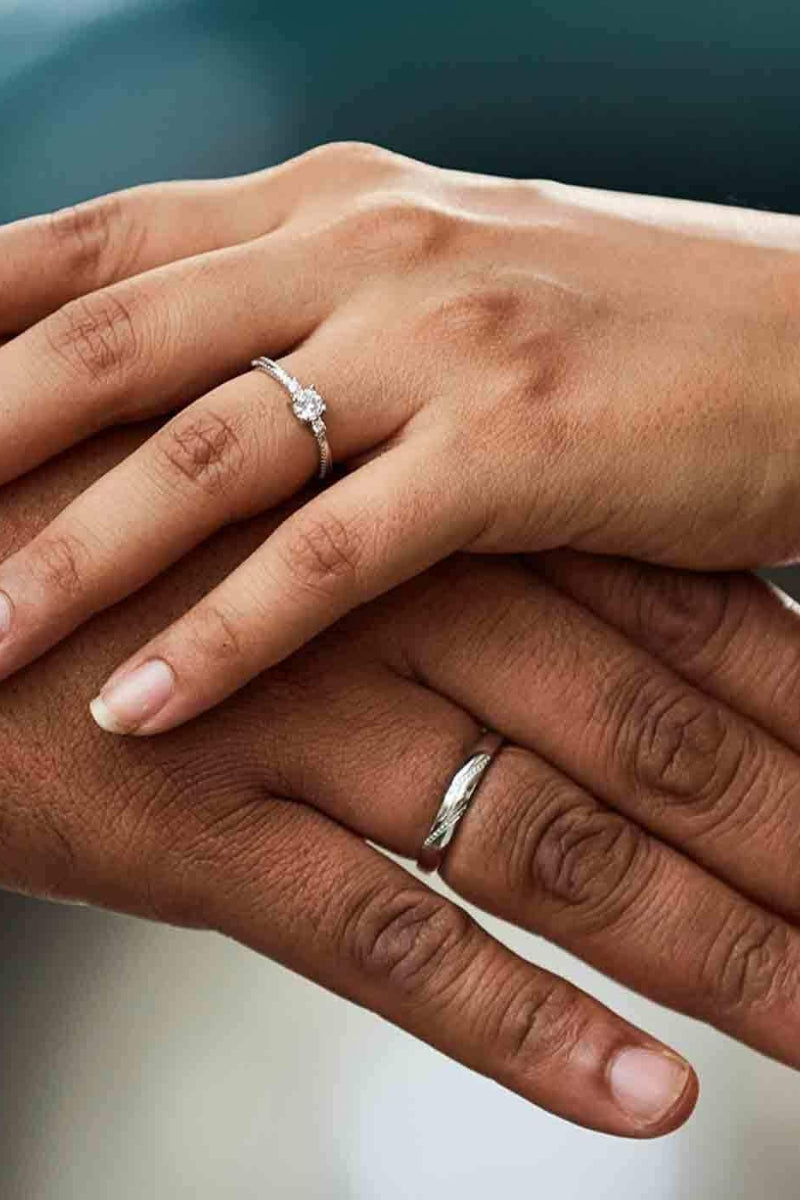When someone has hurt you, it’s difficult to know how to forgive and forget. But, it can be done. Here are some guidelines to follow and free yourself.

So, someone has done you wrong and you just don’t know how to handle it. Should you forgive them and act as if nothing has ever happened? Or should you shun them and cast them away from your life with no hope of ever returning? That’s why it’s important to learn how to forgive and forget.
When someone has hurt you, you might have a wide range of responses. You might be furious right away, extremely sad, or just so *over it* you don’t even want to deal with them at all.
These are all logical reactions to someone doing you wrong, but they don’t exactly answer the question of whether you should forgive and forget someone when they hurt you *intentionally or unintentionally*. Neither do they help you decide the right step, or help you with how to forgive someone and eventually forget what they did to you.
But we’ll get to all of that in the steps that follow, so you can decide on the right step and look back with absolutely no regrets, no matter which direction you choose.
How to forgive and forget
Before we get into how to forgive and forget, you have to ask yourself a really simple question.
Do they deserve forgiveness?
There are so many people in the world who spend years contemplating this very question. At first, you might not be so sure who had hurt you badly enough to warrant you banishing them from your life for good. These are the guidelines that many people follow when deciding if they should forgive and also if they should forget.
Forgive – What to ask yourself to know if you can forgive someone
Forgiveness is something that can take a lifetime for a person to accomplish. It doesn’t come naturally to most of us.
But if these describe your wrongdoing person and what they did, forgiveness should definitely be on the table.
1. They apologize right away
People who deserve forgiveness know their fault and acknowledge it right away. If they did something wrong and recognized it and showed you as much, then they should be forgiven-assuming their wrongdoing wasn’t super bad. But then again, “sorry” just can’t undo some things.
2. You found out from them
Not only is it important they apologize right away, but if they did something without your knowledge and are the first to tell you about it instead of some coworker or Facebook friend, you know they are really sorry.
They realized their mistake a little too late, but they still realized it and wanted to make it right as soon as possible. So if this is the case, then forgive them!
3. It was a minor mistake
Little things are much easier to forgive and forget than major ones. If they’ve done something petty or just small enough that, yeah, it hurt, but in the big scheme of things, it’s not a big deal, then forgiving them might even be the easiest option.
By not letting the little things go, you turn them into huge issues causing a lot more harm than they originally were. So forgive the small stuff.

4. They’ve never done anything like it before
If this is the first offense for them and you know they’re really sorry, just let it go. Make sure to communicate how much it hurt you, but forgive them. Everyone deserves a second chance.
5. You feel like you can still trust them
This is a point easily forgotten. If someone has lied or hurt you in any way, but, overall, you still feel like you can trust them 100%, you should forgive them.
Your gut instinct is usually right and maybe this person just slipped up.
6. You genuinely feel they’re sorry
Just saying the words, “I’m sorry,” doesn’t do anything if you don’t feel like they mean it. If you really believe they put forth the effort to apologize and make sure you know how sorry they are, then that’s worth forgiveness.
7. What they did doesn’t change your perception of them
It’s hard to forgive someone for something they did especially when it completely changes the way you view them as a person. Sometimes people do stuff so wrong and horrible in your mind you can’t even imagine remaining in a good place with them.
But if what they did doesn’t change your view and opinion of them as a person, it’s safe to forgive them. As long as their actions still follow the rest of these guidelines on how to forgive and forget, that is.
8. You know right away you’ll get over it eventually
It’s okay to be angry with them. It’s okay to tell them off and have a few choice words with them.
But if you know after the anger passes that it’s something you’ll get over fairly easily, it’s worth forgiving them for.
9. They’ve made it up to you somehow
It doesn’t have to be something outlandish and fancy. But if they have somehow made an effort to make it up to you, they deserve your forgiveness.
It shows they are sorry enough to do something about it to make sure you forgive them. And for that, it’s worth it.
Forget – How to decide if the pain caused is worth forgetting for good
Forgetting when someone has wronged you is a whole different thing than simply forgiving them. Since we can’t actually control what we remember, the term “forgetting” isn’t exactly true.
A more accurate phrase would be “letting go” because if you forgive and forget, you are basically vowing to never reopen the incident for discussion. Here’s how to know if you should not only forgive, but also forget and let go of the issue for good.
1. You weren’t that mad about it
They may have been more situations where you wouldn’t let it go because you thought you were supposed to be madder about it. Society as a whole would agree that what that person did was really bad.
But the truth is, you might not have been that angry. Maybe it’s because you had already forgiven them. Or maybe it was because you just knew they didn’t mean it. But either way, if it doesn’t anger you that much, it’s not worth holding onto.
2. It wasn’t something horrible
Just like you should easily forgive the small stuff, forget the small stuff, too. There’s no point in holding onto the little negative things in life. There are far too many bigger issues you should make space for in your mind.
3. You know they’ll never do it again
If you know deep down there’s no possibility of something like this repeating, just forget it. However, if it happens again even when you thought it wouldn’t, hold onto that.
Only forget if you’re 100% sure they would never ever do something like that again. It’ll make your interactions with them much easier if you wipe the slate completely clean.

4. They’ve never done anything like this in the past
It is the first offense and them being overly sorry about it makes it likely it won’t happen again. It doesn’t seem like it’s a habit, and you’ll be safe just forgetting the whole thing ever happened.
5. You want to give them a second chance
It’s almost impossible to give anyone a fair second chance when you didn’t forget what they did in the first place. It isn’t fair because you’re not giving them a clean slate.
If you actually want them to have a second chance at proving themselves to you, then you owe it to them to forget their previous incident and truly give them that clean slate. So, in this instance, forgive and forget.
6. You know that you can
For some people, it’s just too hard to forget about something when it hurt them. While this is understandable, it can really throw a wrench into someone when they really do want to forget.
So, before you tell this person you forgive them and will forget about it, just make sure you can really forget it. Otherwise, you’ll both run into issues when it’s brought up in conversation down the road.
How to forgive someone – And forget, so you can heal yourself and your relationship with them
Now that you know if you should simply forgive, or forgive and forget, how the heck do you actually do this? Don’t worry. We have the steps for you to follow right here.
1. Work through your feelings
When someone hurts you, it’s important to not try to bury your feelings. Instead, you should bring them out and feel them. Try to work through the anger and the grief the best you can. When you do this, you can better process your emotions.
Then, after you do that, try to calm down and look at it objectively and logically. Sometimes, when you are overcome with emotion, you don’t see things clearly.
2. Tell them what they did and how it affected you
Maybe the person doesn’t even know that they hurt you. If that’s the case, then you need to talk to them and tell them what they did and how it affected you. Their actions could have been accidental, but that doesn’t mean that it hasn’t changed you.
So, give them the respect to tell them how you were hurt by them. If they weren’t sorry before, they will be once you tell them this and talk to them about it.
3. Think of it from their perspective
Most people are very self-centered. In other words, we only see things from our own perspectives. And sometimes, we expect everyone else to see the world the way we see it too. But that’s not realistic.
Maybe you thought what they did is unacceptable. But was it really? Or are you the only one who thought it was unacceptable? Not everyone feels the exact same way you do. So, if you want to know how to forgive and forget, try to look at it from their perspective too, not just your own.

4. Are you responsible for anything?
It’s so easy to blame the other person for hurting you. After all, they are the ones who took that action *or inaction,* right? But maybe you are partially responsible for how they acted too. Human relationships are very interdependent.
In other words, both people’s actions affect the other person’s actions. So, maybe there was something you did – or didn’t do – that affected their behavior that hurt you. It’s not easy to take personal responsibility, but you really should do it.
5. Don’t take it personally
Many times, when someone hurts us we can’t help but take it personally. But sometimes, what they did isn’t directly about you. It’s more about them and their problems.
For instance, let’s say you are not getting enough love, affection, and sex from your partner. You might be angry and think it’s because you’re not attractive enough. But it could just be that they don’t have a high sex drive and aren’t an affectionate person. Their behavior isn’t because of you, it’s because of them.
6. Try not to judge too much
People love to be critical and judge others. This is unfortunate because no one is perfect. So, why would you expect people to be perfect and conform to all of your expectations? That’s not reasonable.
So, if you want to forgive and forget, try to refrain from judging what they did too much. Of course, it might have been really bad and completely unacceptable. In that case, judge all you want. But if it’s something relatively minor, then don’t be too critical.
7. Accept what happened
When we hold back our forgiveness, it’s almost like we won’t let go of the hope that the past will change. But of course, you can’t change the past. It happened. It won’t magically disappear.
So, you just need to accept that you can’t change it. One of Buddha’s famous quotes says, “It is your resistance to what is that causes your suffering.” In other words, you’re resisting an unalterable past, and that is why you suffer.
8. Forgiving isn’t condoning
A lot of people think that if they forgive someone, it’s the same as condoning what they did. They think it’s almost like saying to them, “What you did is alright, and go ahead and do it again to me!”
But that’s not true. Just because you forgive doesn’t mean that you are saying it’s okay. You can forgive, but let them know that they should never do it again. And that you will probably never really forget.
9. Let it go for yourself
Buddha also has another great quote: “Holding on to resentment is like drinking poison and expecting the other person to die.” In other words, resentment only hurts yourself, not the other person.
Carrying around negativity and resentment is a heavy burden. It’s like carrying around a lot of luggage with you. It gets exhausting. So, you should let it go so you can feel lighter and happier, and that has nothing to do with them.
Knowing how to forgive and forget is not easy, but it can be done. The road to forgiveness can be a long and lonely one for some people. Make it easier on them and yourself by using this guide to learn when it’s okay to forgive and when it’s time to finally forget about the whole thing.






